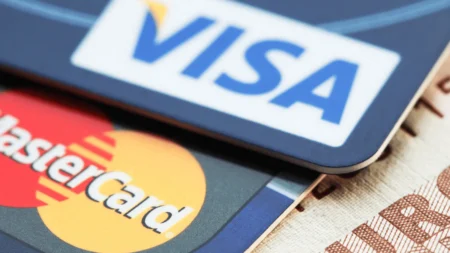Tax credits and tax deductions are two distinct elements that can save you money on taxes. However, tax credits have more impact than tax deductions, and some credits are better than others because they are refundable.
This is where the working income tax benefit in Canada comes in. It is a refundable tax credit available for low-income Canadians in the workforce. Refundable credits are a way to get funds back if any amount remains after your tax debt is reduced to zero. Tax credit refundable is usually more than your overall tax liability.
Working Income Tax Benefit
Reintroduced in 2018 as Canada Workers Benefit (CWB), the Canada workers benefit is a program by the Canadian government aimed at investing in the middle-class, working-class citizens of Canada who are experiencing wage stagnation. Most workers may also be eligible for additional payments like the disability supplement.
Although the maximum income level to qualify for this benefit differ per province in Canada, the minimum income is CA$3,000. Generally, the refundable tax credit is for workers earning the minimum between CA$3,000, CA$24,111, or CA$36,483 for families. While the maximum benefit is CA$1,355 for individuals, for families, it is CA$2,335.
So far, the Working Income Tax Benefit (WITB) provides over CA$1.1 Billion in benefits to more than CA$1.4 Million Canadians yearly. You can receive all benefits due in advance by completing the Form RC201 by applying in My Account or contacting Canada Revenue Agency (CRA).
Working Income Tax Benefit Eligibility
There are some criteria you must meet to qualify for the CWB. Below are some of the requirements:
- Must be a Canadian resident during the tax year
- Must be at least 19 on Dec. 31
- Must earn at least CA$3,000 from employment or self-employment but have a total taxable income of less than CA$24,112 for singles or CA$37,173 for families
- Below 19 years old, but have a spouse, a common-law partner, or a child that loves and depends on you.
Note that you may still be eligible for the CWB if you are under age 19, provided that you have a common-law partner, spouse, or a dependent under age 19 who lives with you. Suppose you have a spouse one of you can apply for the CWB.
You have to complete the RC66 form to register your dependent. If your dependent is registered for the GST/HST credit, you don’t have to register him/her.
Working Income Tax Benefit Ineligibility
You may not be eligible for the CWB if you fall under the following category:
- If you’re a full-time student in a specified college or university (if you attend college at least 13 weeks in the tax year)
- If you don’t have a qualifying dependent
- You’ve spent an average of 90 days or more in jail in the tax year.
- If you’re are a diplomat or related to such a person.
Disability Supplement
You may be able to claim an additional disability supplement if you qualify for the CWB and disability amount. To be eligible for the disability supplement, you must have a work income of an average of CA$1,150 and file the T2201 Form – Disability Tax Credit Certificate with the CRA. In case you don’t have an approved T2201 form on record, you must resend your application before receiving the disability supplement.
Claiming the Canada Workers Income Tax Benefits
You must fill out Schedule 6 to determine your CWB tax credit for the province or territory where you live for tax reasons. After determining your CWB amount on Schedule 6, you can claim the benefit on line 45300 on your tax return.
- Use this line for all provinces except QC, AB, and NU.
- For QC only, click here.
- Use this line for AB only.
- For NU only, click here.
Working Income Tax Credit Advance Payments
Once you qualify, you may apply for advance payment of the CWB. The advance payment is 50% of your projected CWB in the year. This advance also includes any disability supplement you receive. Bear in mind that any CWB amount you qualify for but did not get any advance payment is paid to you when the Canada Revenue Agency assesses your tax return.
You must apply yearly between Jan.1 and Sept. 1 to start receiving CWB advance payments. The CRA requires you to complete Form RC201 – the Canada Workers Benefit Advance Payments Application form to show that you want to receive your payment in advance.
How the Canada Workers Benefit works
The CWB commences when you start earning an employment income of at least CA$1,300. You can get up to 26% of every CAD you earn above that amount until you attain the maximum benefits limit for your family situation and province.
Note that when your household taxable income attains a certain point, the CWBs are reduced by 12% until it is removed at a higher threshold. Also, CWB is attainable per person in a household, though each spouse may receive an extra disability supplement if they both qualify.
The CWB comes in the form of a refundable tax credit. You can decide to receive the exact amount in a lump sum yearly or extend it throughout the year. This means you can receive half the estimated amount in four advance payment throughout the year, and the remaining lump-sum after the CRA assess your taxes.
Calculating your Canada Workers Benefit
The CWB you receive is calculated based on the following factors:
- Marital status
- Province or territory of residence in Canada
- Working income
- Net income
- Eligible dependent(s) (if any)
- Eligibility for the disability supplement (if any)
- An eligible spouse (if any)
- Taxable scholarships, fellowships, bursaries, and artist project grants
- Self-employment income
You don’t have to declare any tax-exempt working income earned on reserve or any allowance received as an emergency volunteer – it is optional. In a case where your spouse is ineligible to receive the CWB, and you don’t have a child depending on you, you must calculate your CWB as if you’re single.
Exclude your partner’s income while calculating, as the CRA will calculate your benefit as if you were single. Else, you must include your total household taxable income, and either you or your spouse will receive the CWB. If you and your spouse can’t decide whom to receive the money, the CRA will determine for you.












